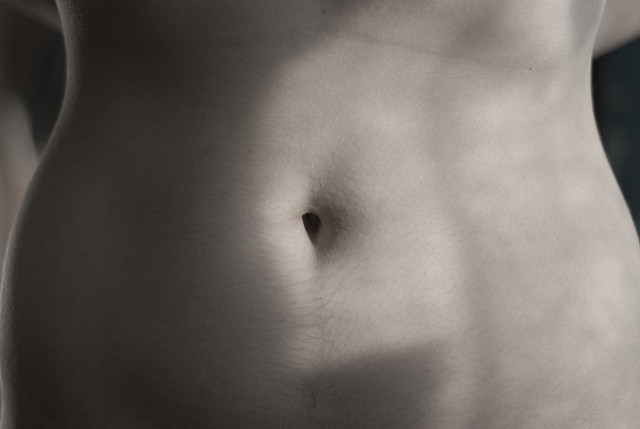
I knew he was going to say something. I could just feel it. Maybe I could sense his eyes on me. Looking me up and down. Assessing.
It was December 31, 1988. I remember the exact date because I was at my cousin Laura’s wedding. In a casual conversation, I mentioned to a friend of my uncle that I had spoken to the cross country coach at the University of Massachusetts and was considering running for the team.
“You better lose some weight,” he said.
In front of some of my family and my then-boyfriend, all I could do was nod and smile. From the outside, it may have appeared that I agreed with his words. Even if I had been able to formulate a response, I’m not sure if I could have forced it out of my body, frozen as it was.
Worse, no one around us spoke up, to either agree or disagree.
As we left the wedding and this man’s words sunk in, I was still stunned. It’s taken me decades to process all of the emotions. Anger. Embarrassment. Sadness. Shame. He said, “You better lose some weight” and I heard, “You are unlovable.”
Let me tell you why:
I always considered myself a “big girl.” Broad shouldered and strong, I wasn’t one of those wispy, lean runners that could effortlessly glide along when she ran. I was a powerhouse and I hated that about myself. I wanted to be skinny and small. With one ill-considered comment from a relative stranger, everything I believed about my body, all of the hatred I felt toward it, became validated.
This was also my best kept secret. I was okay with confidentially having cruel conversations with myself about my body, but now someone else joined in. Someone else believed my body wasn’t acceptable. And he’d told me so.
It took a lot for me to consider running on the cross country team at UMass, a big school that runs with the big dogs. I had only run one season of cross-country in high school. Running cross-country in college was a way to redefine myself. Challenge myself. Ask myself “what if?” and then taking one step closer. “You better lose weight,” in that context meant “You can’t do this because you’re fat.”
I was desperate for this man’s approval, but yet I wouldn’t have accepted it if he had offered it. And I didn’t know this at the time. He was old enough to be my father. I missed out on the approval from my biological father who I never met. I missed out on the approval from my stepfather that ignored me.
I thought I wanted his response to be encouraging and supportive, but, as history has shown me, I would have dismissed any kindness and just rationalized his words as being nice and polite. Or, I would have told myself that I needed to be better, work harder and be more to make his approval real.
You see, I was trying to fill an empty cup. An empty cup with a crack. The approval of others just leaked out.
All of my hatred and insecurities around my body did not start with this man’s comment. And it obviously didn’t end when the wedding was over. Those words, “You better lose weight” stayed with me for decades.
When I started to teach yoga I thought, I better lose weight to teach yoga. When I got a promotion at work I thought, I better lose weight to deserve that new manager title. When I opened a yoga studio I thought, I better lose weight to be a yoga studio owner.
I’m not sure there was a time when I didn’t think that I better lose weight. After all, deep down, I was so afraid that I was unlovable.
I believed that if I could lose weight, I could show the world I am worthy of love.
Something deep inside of me shifted when I realized that hating my body did not help me lose weight.
I’ll say that again because it’s worth repeating: Despising my body actually made me diet more, overeat more, and binge more.
I thought that if I liked my body the way it was, then I would never have the discipline or incentive to change it.
But I was wrong.
What happens when you believe that you need to lose weight?
I felt hopeless, desperate, fat, and I hated my body. More than anything, I wanted to go on a diet to feel better about myself.
What happens when you don’t believe you need to lose weight?
I feel free and light. I get to honor my body as it is. And make choices that are nurturing and loving.
Here’s the truth. People say cruel, harmful, and insensitive things all the time, even if they don’t mean to. Your sweet old Granny may look you in the eye and tell you she prefers you when you’re thin. A friend from work may tell you how great you look now that you’ve lost a bit of weight (which has you questioning how you looked before). An oblivious stranger may ask when the baby is due, when your child rearing days are clearly and thankfully over.
You and I can take these remarks—whether the person meant well, was completely clueless as to how the comment would make us feel, or was in fact trying to hurt us—and respond in a way that is true to us. We don’t need to be held hostage by their words. We don’t need to let others’ opinions influence how we feel about ourselves. Our body is worthy of love and respect, no matter what our shape or size. Only we get to decide that.
What would I do if I could go back to my 18-year-old self and unfreeze her when she heard the words, “you better lose weight”?
I wouldn’t smile back. I’m tired of being polite, and I’m tired of putting other people’s social comfort above my own truth. I may show the hurt that I felt, because his comment was incredibly embarrassing and painful. I felt so ashamed of myself and my body.
I also feel protective of that 18 year old. The girl that didn’t know herself that well, but was certainly trying hard to make her own opportunities in the world. She didn’t just contemplate running cross country at UMass during that conversation so many years ago. She joined the team and ran, for two seasons. With my 18-year-old self at my side, I would say to this person: Mind your own business and keep your comments and judgments around her body to yourself.
After all, I know now that my self-worth comes from me. My cup of self-worth is my responsibility. I choose what comes in and what goes out. Outside comments and judgments, positive or negative, don’t need to impact how I feel about myself.
Over 25 years later, I know that for sure. Accepting my body and myself is a constant practice that I’m committed to. My body is a powerhouse. It’s strong and able. And it’s mine. I am worthy of love. I am lovable. No matter what anyone says.
The next time someone comments on your body, suggests that it should look different and it makes you question yourself, what will you do? Will you find your voice? Will you walk away with confidence and grace?
~
~
~
~
Author: Tara Whitney
Image: Aleksander Razumny Nordgarden Rødner/Flickr
Editor: Travis May


Read 0 comments and reply